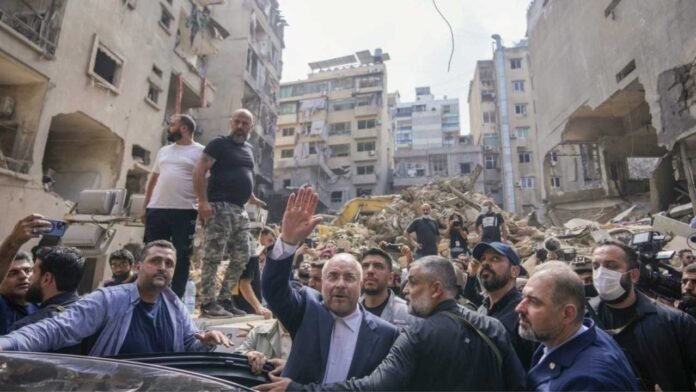The situation in northern Gaza has not improved as there are still constant heavy bombardments by the Israeli army. Recent strikes reported to have killed a minimum of 22 people. Civilians: Some stay in their houses, some have no food, and some have nowhere to stay. Since the start of this month, there has been no food aid activity within the region. Meaning over 400,000 people have been left unsupported. The World Food Programme of the United Nations has expressed uncertainty about the period the current food stock will last.
This military operation of the Israel Defense Forces commenced as a reaction to the actions of Hamas after October 7, which caused approximately 1200 Israelis to die, mainly civilians. Retaliatory missile strikes against Hamas and Hezbollah responses by the Israeli military followed this. And yet, these relentless bombings lead to more devastation and dependent people.
Lebanon Caught Under Israeli Aerial bombardments
The fighting has spread also into Lebanon, where targeting raids were conducted by IAF air forces over southern and eastern areas. Civilians were killed, and hospitals in the Bekaa Valley were damaged. The body count in Israel’s conflict with Hezbollah in Lebanon is now more than two thousand. There are relief agencies assisting in the hard-hit regions, but their work is hampered by the bombings that are still in progress.
Crisis in Gaza
The perpetual conflict has also aggravated the already existing humanitarian crisis in Gaza. Currently, over 1 million people have been displaced. Approximately 90% of the population has had to relocate at least two to three times. Some of the targets have been entire neighbourhoods, and families have been left with no houses or shelter. Many residents are also adamantly staying in their places of abode, irrespective of the enormity of the destruction. One resident of Jabaliya, Ahmed Abu Goneim, aged 24, narrated how demolitions of other structures due to airstrikes resulted in his neighbours. Relatives being killed while other residents fled the area.
At the same time, the thin supplies at the places that have already provided refuge to the refugees are running out. Those like Hamza Sharif, who stays with his parents in a school converted into a shelter, reported the conditions as deplorable and oppressive as bomb explosions were heard during the night and even throughout the day, and no help has been received at the shelter since early October.
The Growing Need for Support
The war continues, and the situation in Gaza and Lebanon is in dire need of more humanitarian support now than ever before. The civilians stuck in the warring areas suffer from food insecurity and a lack of medicines and housing. NGOs are pretty active in the region and trying to offer assistance. But constant air strikes hinder their work, and people need help. The battle has no imminent resolution. Therefore, some attempts are placed amidst the fighting to at least get the civilians through harsh circumstances.


